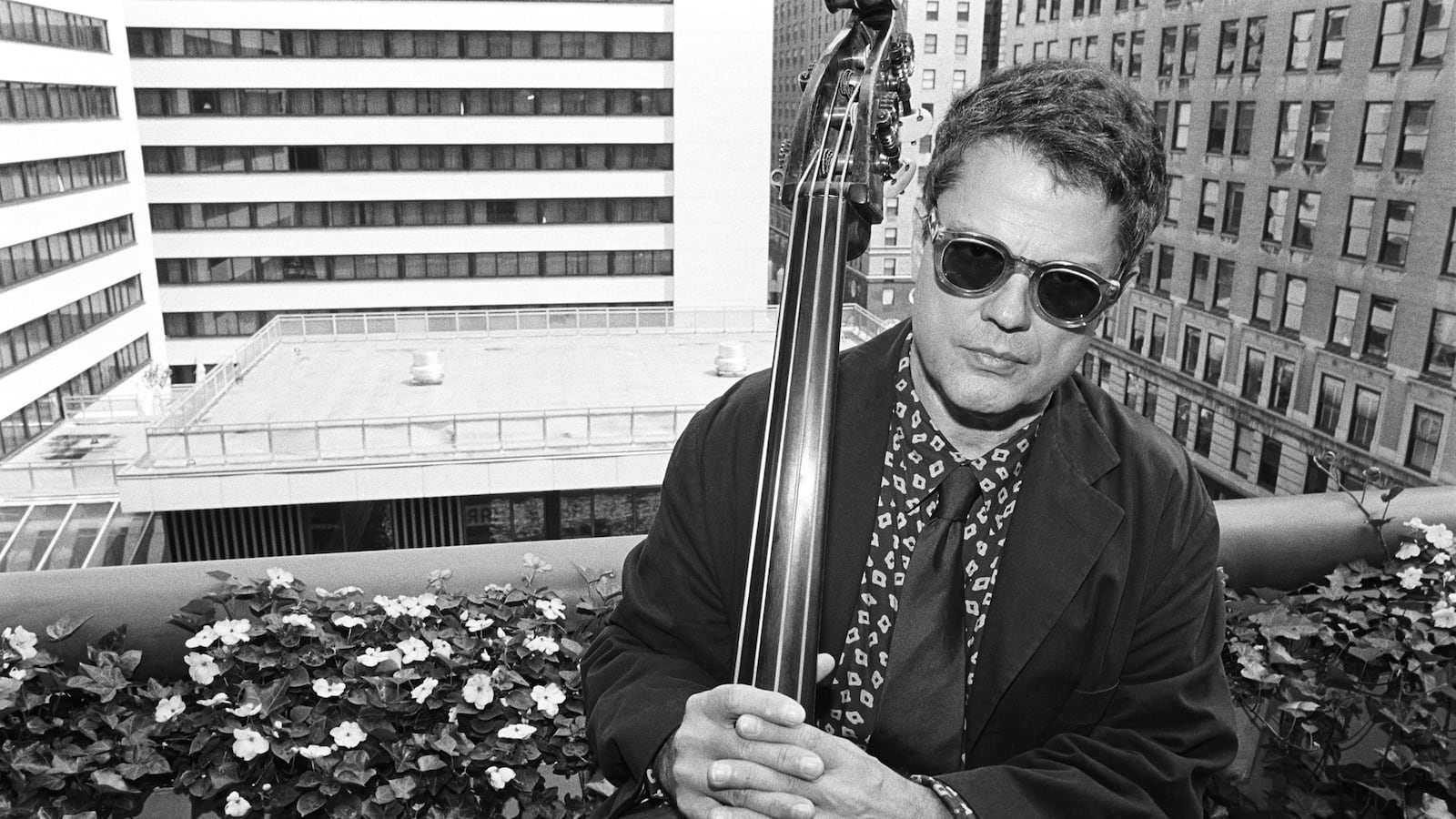The case can be made that Charlie Haden was the ultimate American musician. Certainly few musicians so effortlessly spanned so many different styles.
Haden’s reputation rests most centrally on his work with the Ornette Coleman quartets that introduced the concept loosely—and lazily—known as free jazz in the ’60s. Those frenetic, edgy bands have lost almost none of their power to shock and unsettle a listener, but one thing has become clear with the passage of time: Beneath the wild and often mystifying leads laid down by Coleman’s sax, the music found an implacable anchor in Haden’s bass playing. This was music without a road map, but if you listened to what Haden was doing, you never got lost. He always took you home.
With his death on Friday at the age of 76 (after a prolonged struggle with post-polio syndrome), America has lost one of its most seminal musicians.
Haden’s avant-garde credentials are indisputable. But the fact is, he could play well in almost any style. His duet albums with the pianist Hank Jones beautifully explore the gospel tradition. Other pairings, with musicians as different as Keith Jarrett, Beck, and Pat Metheny, are master classes in jazz and even folk-based idioms (one of the albums he made with Metheny includes songs by musicians as disparate as Henry Mancini, Ennio Morricone, and Roy Acuff, and the amazing thing is how coherent that album sounds).
Then there was the Liberation Music Orchestra, a loose big band conglomeration that Haden organized with the composer and bandleader Carla Bley. Most of the time when people mix their politics with their music, the results are less than thrilling. But when this old unreconstructed leftie refashioned anthems of social justice that ranged from Spanish Civil War songs to “We Shall Overcome,” you often found yourself more than ready to storm the barricades.
And then there was Quartet West, a Haden group that made music resembling a soundtrack for a ’40s film noir movie that only played in your head. On these ventures, Haden and his collaborators bravely interpolated their music with songs by the likes of Jo Stafford and Chet Baker, and the Quartet’s work suffers not one bit from the comparisons. Indeed, it’s often hard to tell where one artist ends and the others pick up the thread.
A few years ago, Haden released Rambling Boy, an album that tapped his musical roots and at the same time extended his musical inheritance into the future. “Cowboy Charlie” Haden made his musical debut at the age of 2, and grew up singing professionally with his family’s band that played country music in the South and Midwest. Rambling Boy’s songs, such as “20/20 Vision” and “A Voice From on High,” lovingly recreate that old-time sound, but the coolest thing is that Haden’s musical accomplices are his wife and children, including the insanely talented Haden Triplets (and even son-in-law Jack Black). This is an album that gives sweetness a good name.
The conventional wisdom on the incendiary music that Haden made with Ornette Coleman was that they were reinventing jazz, that they had kicked tradition in the face and left it for dead. A closer listen tells a different story. Coleman grew up playing rhythm and blues in Texas honky tonks, and while you’ll never confuse him with King Curtis, you can hear that music in his playing. In a similar fashion, you can hear the pulse and drive of Hank Williams and Maybelle Carter in what Haden was doing on the bass.
And what a sound he got out of his instrument—he could make that bass sound as big as a house. His frequent collaborator Metheny once called him the best timekeeper in jazz, but Metheny didn’t stop there. “More than that,” Metheny says, “he touches a place that’s universal in the music he plays.” In the people he played with and the music he made, Haden plainly sought that universal feeling all his life, and the astonishing thing is how wonderfully he was able to share it with the rest of us, to make us see that labels like country and jazz and so forth are more marketing labels than anything else, that American music is in fact best understood as a broad and powerful river, sweeping aside all genre distinctions. And on that river, Charlie Haden was our Huck Finn.





